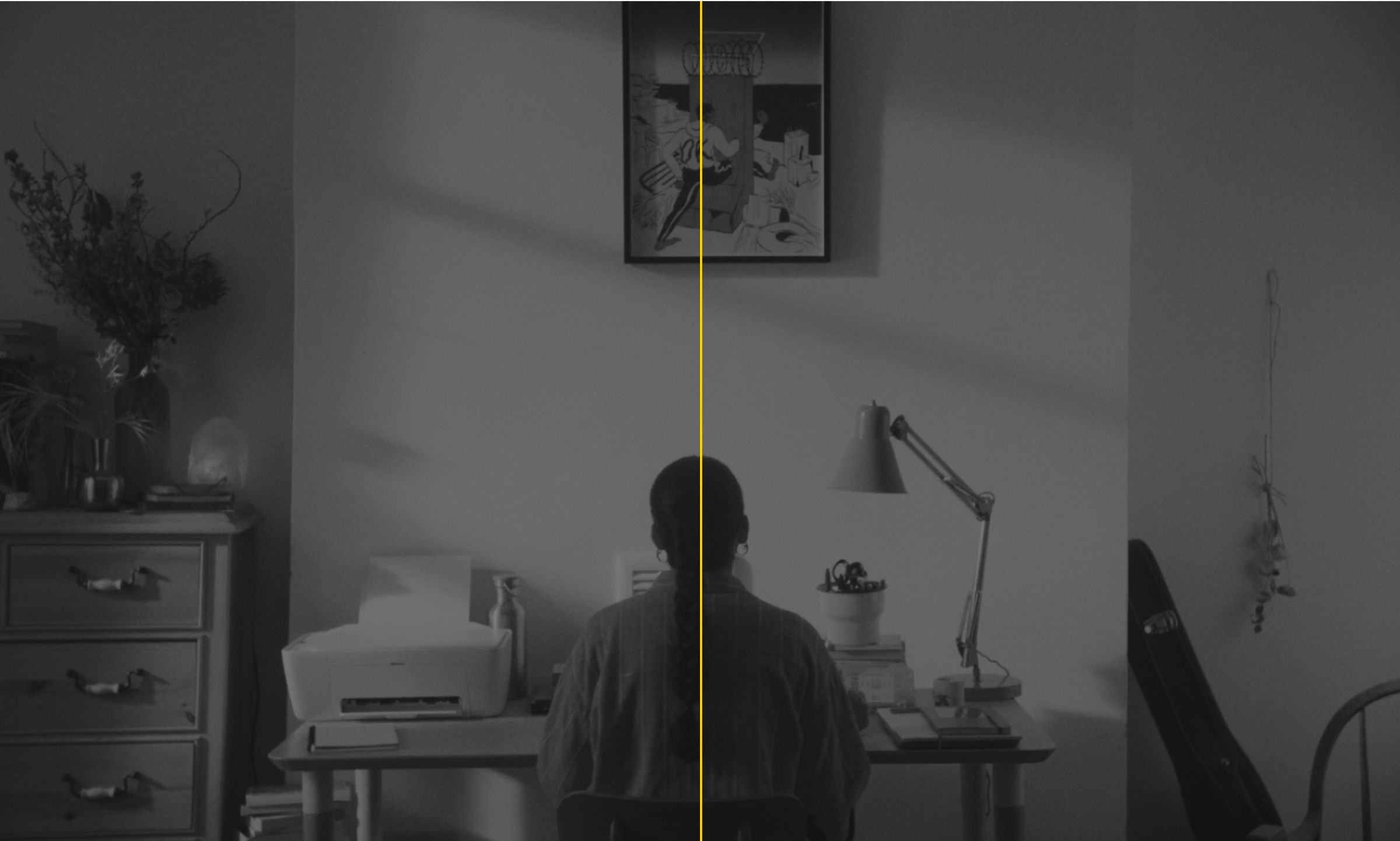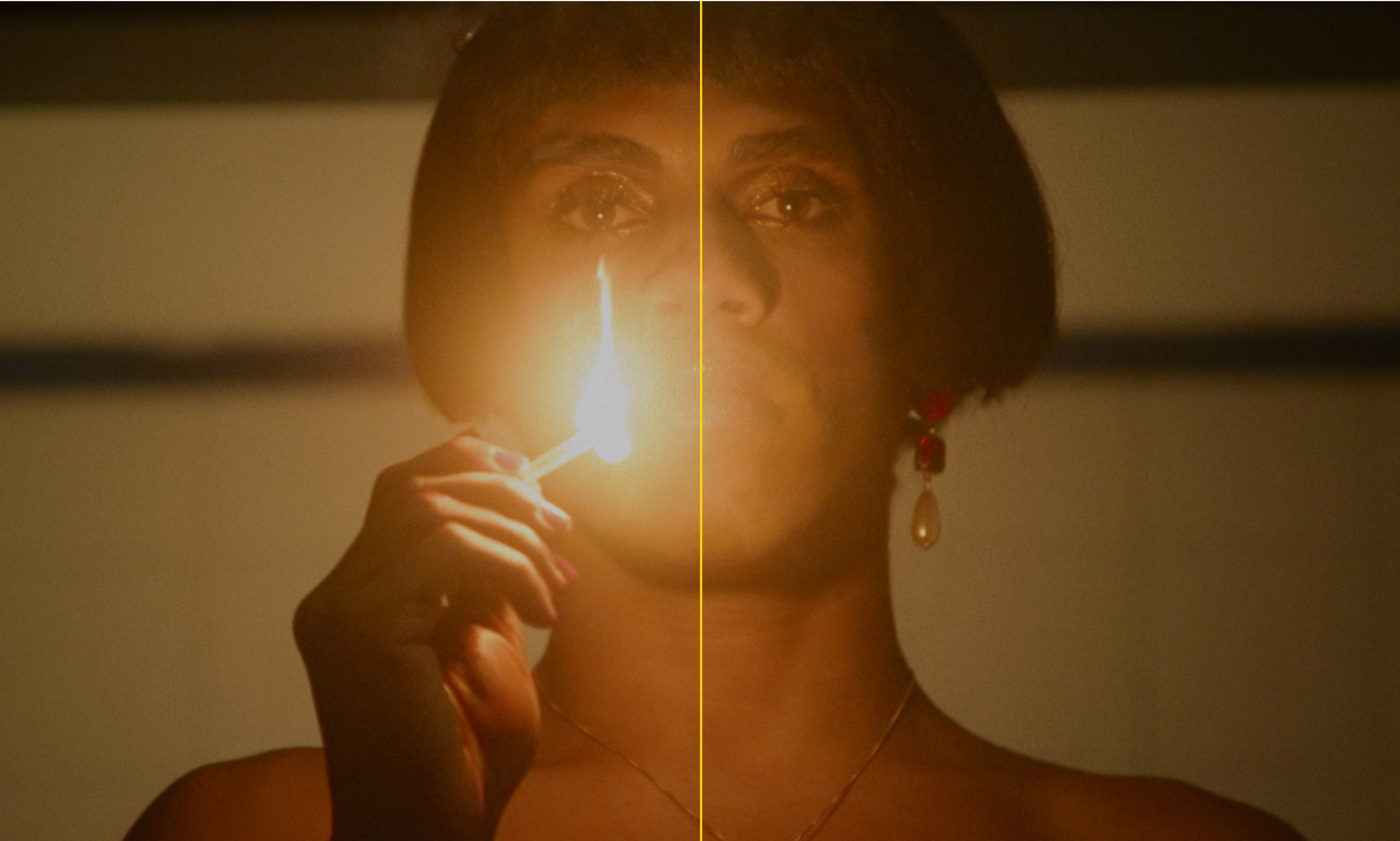Opening night Thursday, October 17
︎ 18:00-21:00
︎ Screen 3 at Warwick Arts Centre, Coventry
QUEER ARCHIVES AND REENACTMENTS
NEO NAHDA by May Ziadé (12 mins)
CASA IZABEL by Gil Baroni (85 mins)
+Q&A (60 mins)
︎ Tickets
︎ 18:00-21:00
︎ Screen 3 at Warwick Arts Centre, Coventry
QUEER ARCHIVES AND REENACTMENTS
IN LEBANON AND BRAZIL
NEO NAHDA by May Ziadé (12 mins)
CASA IZABEL by Gil Baroni (85 mins)
+Q&A (60 mins)
︎ Tickets
On the opening night of its 10th anniversary, Screening Rights is staging a special event at Warwick Arts Centre centred around queer archives and reenactments from Lebanon and Brazil and featuring May Ziadé’s short Neo Nahda alongside Gil Baroni’s feature Casa Izabel. Equal parts vivid reconstruction and ingenious fictionalisation of the narratives that have been suppressed or underrepresented due to the turbulent histories of the Middle East and Latin America, Ziadé’s and Baroni’s films, each in their unique way, outline queer genealogies and combat epistemic oblivion.

NEO NAHDA
May Ziadé / 2022 / UK / 12’ / English
In French-Lebanese filmmaker May Ziadé’s Neo Nahda, Mona, a young woman in modern-day London, goes down a rabbit hole of amateur research after coming across photographs of Arab women cross-dressing in 1920s Lebanon. Rich with photographic influences — Maryam Şahinyan, Van Leo, and Marie al-Khazen come to mind — Neo Nahda fuses together images discovered by Ziadé in the Arab Image Foundation in Beirut with inventions of her own. The result is an electrifying queer renaissance of sorts, hinted at in the film’s title (Nahda being the Islamic modernist movement — ‘the Awakening’ — of the early 20th century).
May Ziadé is a French and Lebanese filmmaker and filmworker based in London, whose work “explores the physical and emotional consequences of the cultural and social pressures to conform.”

CASA IZABEL
Gil Baroni / 2023 / Brazil / 85’ / Portuguese with English subtitles
Created in a similarly playful dialogue with the queer narratives of the past, Gil Baroni’s Casa Izabel was loosely inspired by the real-life story of Casa Susanna, a bungalow hidden in the woods of upstate New York where a group of transgender women and cross-dressing men would clandestinely convene and find refuge in the mid-20th century. While its function largely remains the same, in Baroni’s colourful, Almodóvarian comedic thriller, Casa is transported to the depths of the Brazilian forest of the 1960s. The story of the original Casa is given a deliciously dark twist, complicated by jealousy, racial and class tensions, and lurking political intrigue à la Kiss of the Spider Woman. It is a work of speculative fiction that is as indebted to Casa Susanna as it is to the tradition of Brazilian anti-fascist resistance.
Gil Baroni is a writer, director, and producer born in Brazil. His filmography approaches themes surrounding human rights issues, especially minority empowerment, gender equity, the LGBTQI+ universe, and social class struggle.
The screening will be accompanied by video introductions from the filmmakers and followed by a discussion featuring invited guests. The panellists will include guest curator Daniel Zacariotti (Film & TV PhD candidate at Warwick), actress and film curator Sarah Agha (of The Arab Film Club), the Queer Research Network (Airelle Amedro, Aman Sinha, and Polina Zelmanova, all PhD candidates at Warwick), and Misha Zakharov (curator at Screening Rights and Film & TV PhD candidate at Warwick).
GUEST RESPONSES
UNCOVERING QUEER ARCHIVES IS A RADICAL ACT OF RESISTANCE: FILMS OF RESISTANCE RESPONDS TO MAY ZIADE’S NEO
GUEST CURATOR’S BIO
Films of Resistance is a decentralised community film screening and fundraising resource that believes in the power of cinema to expose, inspire, reflect, frame and reframe; its ability to incite change and resistance on a local and global level. With documentary and fiction films chosen for their artistic impact, the initiative aims to inspire deep thinking, understanding, compassion, and — ultimately — long-term, sustainable and active resistance to the genocide and oppression of the Palestinian people.
Archiving is an addictive form of resistance, especially when you uncover hidden treasures such as those that Mona finds during the course of May Ziadé’s Neo Nahda. Having come across a century-old photograph of cross-dressed Arab women, Mona finds herself feverishly following traces of queer Arab culture in London’s archives. Through an artistic counterpositioning of archival and filmed footage, Ziadé shows the self-exploratory effect of uncovering queer histories from the mainstream historical narrative — a reminder of the power of resistance in revealing alternative histories that global supremacy structures continuously attempt to suppress. Read the full response here︎
GUEST CURATOR’S BIO
Films of Resistance is a decentralised community film screening and fundraising resource that believes in the power of cinema to expose, inspire, reflect, frame and reframe; its ability to incite change and resistance on a local and global level. With documentary and fiction films chosen for their artistic impact, the initiative aims to inspire deep thinking, understanding, compassion, and — ultimately — long-term, sustainable and active resistance to the genocide and oppression of the Palestinian people.
QUEER REFUGIUM AND RESISTANCE AMIDST FASCIST STATES:
DANIEL ZACARIOTTI INTERVIEWS GIL BARONI ON CASA IZABEL
GUEST CURATOR’S BIO
Daniel Zacariotti is currently a PhD Candidate at the University of Warwick. His work is focused on queer art forms under far-right and fascist governments in Latin America, with a decolonial and intersectional epistemological approach.
DANIEL ZACARIOTTI INTERVIEWS GIL BARONI ON CASA IZABEL
Set in Brazil in the early 1970s, during the military dictatorship, Casa Izabel depicts a group of men who gather annually, away from society, to cross-dress in a Casa Grande (the term used for the grand houses of slavers in colonial Brazil, as opposed to the Senzalas where the enslaved lived). By encapsulating the possibility of queer existence during a repressive government that enforced the erasure of deviant sexualities and genders, the film presents a contemporary intersectional reading of queerness, race, and class – balancing the film’s 1970s setting with the context of its production and distribution under Bolsonaro’s government. Read the full interview︎
GUEST CURATOR’S BIO
Daniel Zacariotti is currently a PhD Candidate at the University of Warwick. His work is focused on queer art forms under far-right and fascist governments in Latin America, with a decolonial and intersectional epistemological approach.